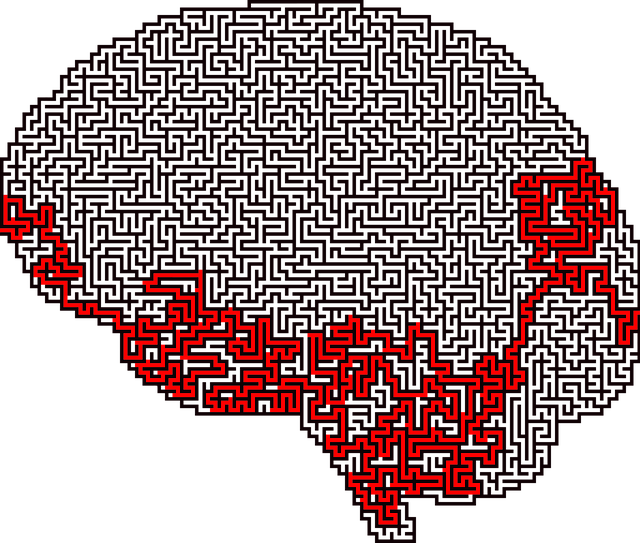Analyzing mental health data, particularly for Longmont Oppositional Defiance Disorder (LOD/LODT), requires a multi-faceted approach. It involves diverse data sources, thorough preparation, and standardized coding to identify trends and risk factors. Therapists use techniques like Risk Management Planning to develop targeted interventions. By combining mood management, self-care, and community support, tailored LODT strategies enhance patient outcomes. Visualization tools help uncover patterns in ODD symptoms, intervention effectiveness, and triggers, enabling personalized treatment plans. Ethical considerations, including privacy, consent, and bias, are crucial for secure data handling and patient welfare.
Mental health data analysis is a powerful tool for understanding complex conditions like Longmont Oppositional Defiance Disorder (LOD). This article explores the process of collecting, preparing, and analyzing mental health data to inform therapy decisions. We delve into specific techniques for examining LOD patterns, emphasizing evidence-based practices. Through effective interpretation and visualization, professionals can make informed choices, ultimately enhancing LOD therapy outcomes. Additionally, we address ethical considerations crucial in this domain.
- Understanding Mental Health Data: Collection and Preparation
- Analyzing Longmont Oppositional Defiance Disorder (LOD) Patterns
- Interpretation and Visualization for Informed Therapy Decisions
- Ethical Considerations in Mental Health Data Analysis
Understanding Mental Health Data: Collection and Preparation

Understanding Mental Health Data is a crucial first step in any analysis process. Collectible data can vary greatly within the field of mental health, ranging from patient records, clinical assessments, and survey responses. Each source offers unique insights into an individual’s psychological well-being or specific disorders like Longmont Oppositional Defiance Disorder Therapy (LODT). To ensure accurate analysis, proper preparation is essential. This involves cleaning the data to remove inconsistencies or errors, and categorizing it for meaningful interpretation. Standardized measures and consistent coding are key to maintaining reliability and allowing for comparisons across different datasets.
A well-structured dataset enables mental health professionals to identify trends, assess risk factors, and develop targeted interventions. Risk Management Planning and Risk Assessment techniques play a vital role in this process, helping to predict potential issues and design appropriate strategies. For instance, by analyzing data related to LODT, professionals can better understand the effectiveness of certain therapeutic approaches, thereby promoting positive thinking and improved patient outcomes.
Analyzing Longmont Oppositional Defiance Disorder (LOD) Patterns

Analyzing Longmont Oppositional Defiance Disorder (LOD) patterns involves a nuanced approach to understanding the underlying causes and effects of this behavioral disorder. Therapists utilize various data collection methods, including observations, questionnaires, and interviews, to gather comprehensive insights into an individual’s behavior. By examining recurring patterns, therapists can identify triggers and develop targeted interventions tailored to each patient’s unique needs.
Effective Longmont Oppositional Defiance Disorder therapy often incorporates strategies for mood management and self-care practices to address the emotional dysregulation that frequently accompanies LOD. Community outreach program implementation is another key component, fostering a supportive environment where individuals with LOD can build relationships, learn coping skills, and develop a sense of belonging. This holistic approach leverages data analysis to guide personalized treatment plans, ultimately enhancing outcomes for those struggling with this complex disorder.
Interpretation and Visualization for Informed Therapy Decisions

Interpretation and visualization techniques play a pivotal role in mental health data analysis, enabling therapists to make informed decisions for Longmont Oppositional Defiance Disorder (ODD) therapy. By translating complex data into understandable visual representations, therapists can identify patterns and trends that may otherwise go unnoticed. This allows for a more tailored and effective treatment approach. For instance, visualizing behavioral patterns over time can help track the progress of ODD symptoms and assess the effectiveness of interventions like Mindfulness Meditation or Mood Management techniques.
Additionally, data visualization tools offer insights into specific triggers or situations that exacerbate ODD symptoms. This knowledge guides therapists in designing personalized strategies, incorporating Mental Wellness Journaling Exercises as a form of guidance to help clients understand their emotions and behaviors better. Through these visualizations, therapists can make adjustments to treatment plans, ensuring they remain relevant and beneficial for each individual’s unique mental health journey.
Ethical Considerations in Mental Health Data Analysis

In the realm of mental health data analysis, ethical considerations are paramount, especially when discussing conditions such as Longmont Oppositional Defiance Disorder (ODD) Therapy. As researchers and professionals delve into analyzing patient data, they must navigate complex issues related to privacy, consent, and potential bias. Ensuring the confidentiality of sensitive information is a cornerstone of ethical practice, guarding against unauthorized access or misuse that could lead to identification and potential stigma.
Risk Management Planning for Mental Health Professionals plays a crucial role in this context, as it outlines procedures for handling data securely and responsibly. Additionally, Mental Health Education Programs Design should incorporate ethical guidelines, fostering awareness among practitioners about the implications of data use. Even when employing Stress Reduction Methods as part of treatment plans, professionals must adhere to ethical standards, prioritizing patient welfare and autonomy throughout the analysis and interpretation process.
Mental health data analysis plays a pivotal role in understanding conditions like Longmont Oppositional Defiance Disorder (LOD) and tailoring effective therapy. By meticulously collecting, preparing, and interpreting data, professionals can identify patterns and make informed decisions to enhance patient outcomes. This process, coupled with ethical considerations, ensures that LOD therapy is not just based on assumptions but on robust evidence, ultimately leading to more successful interventions.














